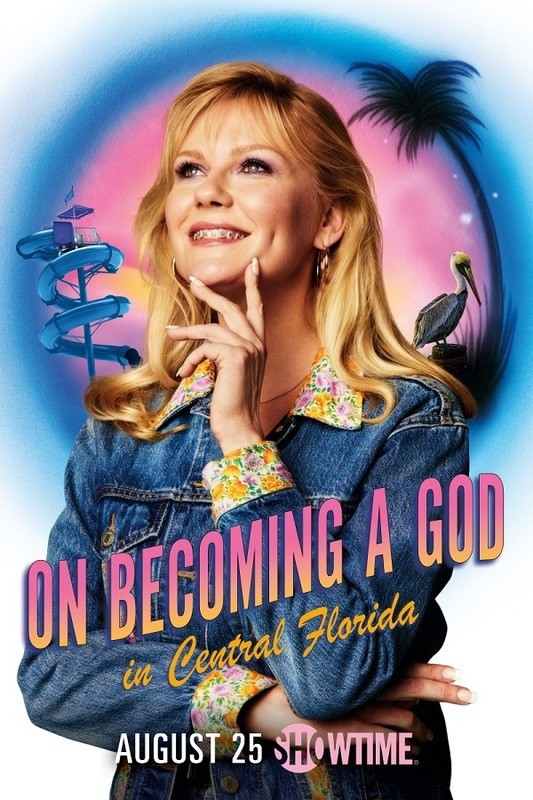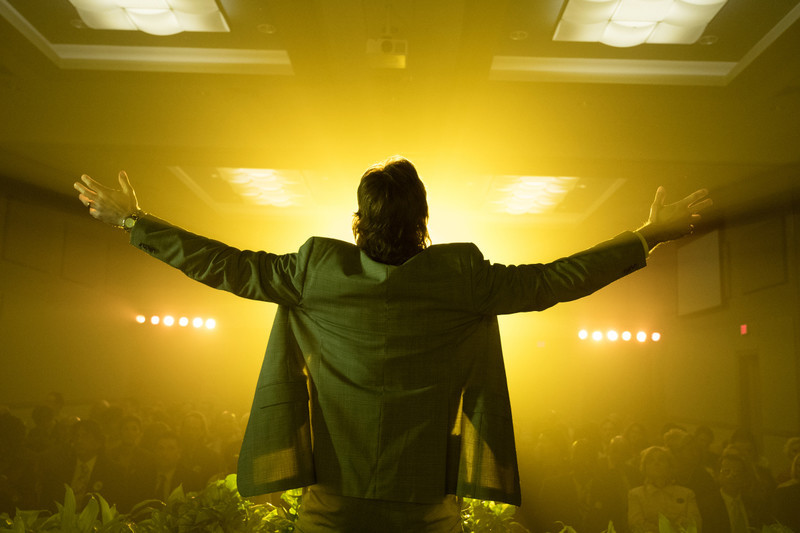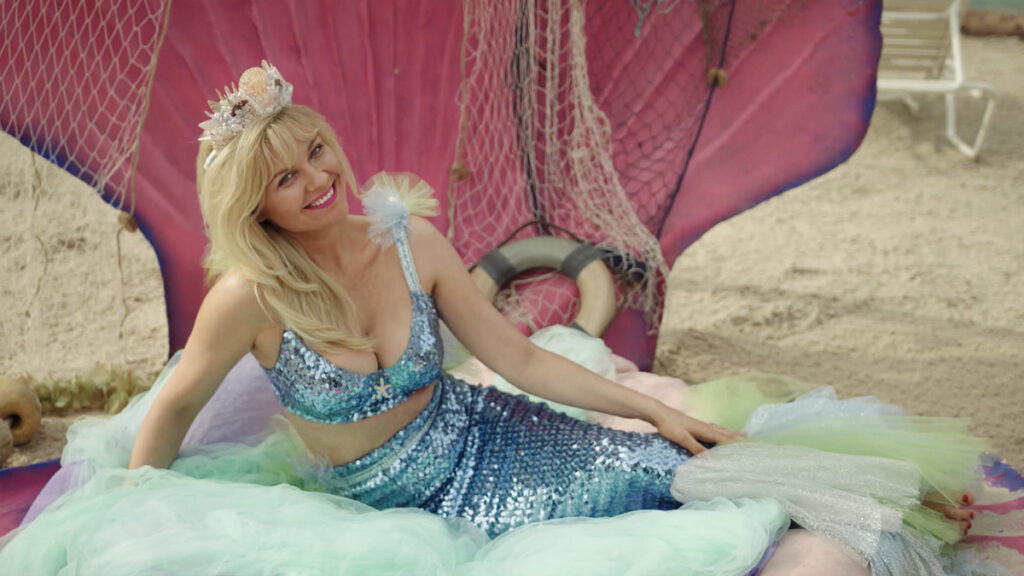In a sense, every commercial is a promise. Eat this and you’ll be happy. Buy this and you’ll be happy. Go here and you’ll be happy. So many people are constantly scrambling to find that happiness, something that feels just out of reach. Showtime’s excellent “On Becoming a God in Central Florida” is about the pursuit of happiness in a country in which it feels like the pursuing never ends. Creators Robert Funke & Matt Lutsky use the world of a company that’s based on a pyramid scheme to dig into something profound about human nature and that generalized anxiety and dissatisfaction that often makes people feel like a failure but is really just a part of the experience. We may not be able to directly relate to the characters caught up in a strange business in Florida in the early ‘90s, but few shows have felt as current as this one. It’s smart, insightful, and very funny television, anchored by two phenomenal performances and storytelling that zigs left when you expect it to zag right. Kind of like life.

The wonderful Kirsten Dunst plays Krystal Stubbs, a waterpark employee with a new baby and a lot of unpaid bills. Her husband Travis (Alexander Skarsgård) is a part of a business called FAM, and partners with a rambunctious young man named Cody Bonar (Théodore Pellerin). Cody and Travis are a few tiers down a pyramid that promises the American Dream. It’s one of those classic schemes that demands its workers not only sell boxes of mediocre product – Krystal has a lot of toilet paper in her garage – but that they recruit new members for the capitalist cult. Travis barely sleeps because he’s so busy trying to build and maintain his “downline,” the people who report to him and will someday make him a millionaire. Or so he’s been promised.
The main voice of those promises is the mysterious Obie Garbeau II (Ted Levine), the King of FAM in the Southwest – I specify region because different “families” of the company become an amazing subplot later in the season. (Imagine the mafia family conflicts of “The Sopranos” but with snake oil salesmen who are basically scamming everyone they meet.) Cody and Travis bow completely at the altar of FAM and Garbeau, buying into his bullshit platitudes and career advice. They’re constantly talking about how many Americans are hooked on their “J-O-B” and the “stinker thinkers” who make up the economy of this country. You see, Cody and Travis are free. Everyone else is just a slave. Krystal is skeptical.
In ways I won’t spoil, Krystal gets sucked into the world of FAM, forced to become one of its major players. One of the many great things about “On Becoming a God” is that it deftly walks that line that writer/directors like Joel and Ethan Coen have through most of their careers in which you start to question whether or not it’s mocking its characters just before it disabuses you of that notion. Yes, Cody is a silly, silly man, one who makes very bad decisions, but Pellerin and the writers keep him genuine. He’s fascinating, especially as his background starts to fill in. Like so many people on this show and in the world, he needs to believe in something, and so he believes in FAM all the way. It starts to become like watching a slow-motion car crash, particularly in the performance of Mel Rodriguez as Ernie, a co-worker and friend of Krystal who gets sucked into the world of FAM. We know he’s so far down the pyramid that he will never get out from under it. But the show doesn’t make fun of him. In fact, it asks for empathy for people who have been given so little to hold onto in life that they desperately need to believe that the parachute they’ve been handed will stop their freefall.

The only problem with “On Becoming a God in Central Florida” is one of season length. It feels like a show that could have accomplished more in 7 or 8 episodes than it does in 10. The pacing drags at times, but the cast and creative team always get it back. Some great young directors have been brought in to help with that, including Charlie McDowell (“The One I Love”) and The Daniels (“Swiss Army Man”).
As great as the writing can be and as buoyant as the show has been directed, this show simply doesn’t work without Dunst. Krystal Stubbs is one of the most fascinating characters of 2019, a woman who realizes the falsity of the pyramid of the American Dream and finds a way to turn it to her advantage. And her scenes with Pellerin are absolutely wonderful. It’s so refreshing to see two performers who so completely get what a show is going for overall while also sketching three-dimensional characters at the same time. They’re both worth considering for Emmys.
Adulthood is about navigating those promises of life. A better job, a healthier diet, a happier home – these are all promises. What’s so brilliant about “On Becoming a God in Central Florida” is that it takes the seemingly unrelatable world of a company built on taking advantage of people and weds it to something we can all understand. And it does so with wit and charm. In a way, I feel about his show like Cody believes in the lies that have been sold to him by Garbeau. He honestly thinks FAM is the future and the truth. For TV fans, this show may be too.
Whole season screened for review.












